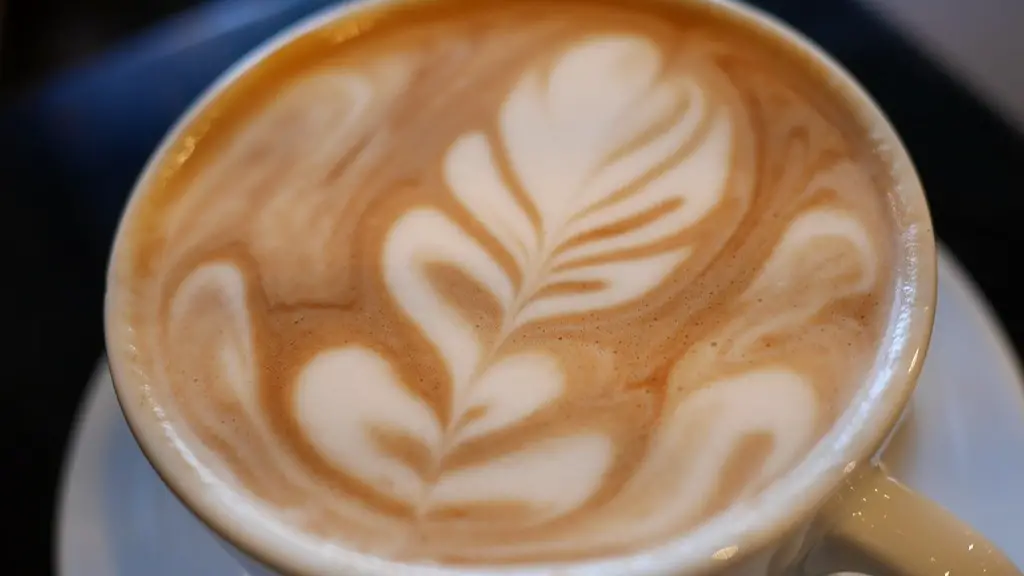Caffeine in Energy Drinks vs Coffee
Although the average cup of coffee contains more caffeine than the average energy drink, there is variation in them both. The amount of caffeine may vary depending on the type and size of coffee or energy drink you are consuming. For example, espresso typically contains more caffeine than a regular cup of black coffee or tea. Additionally, energy drinks range in caffeine content, as some contain significantly more caffeine than others.
According to experts, the amount of caffeine in energy drinks is not only higher than what is in coffee, it is much quicker acting. In fact, most energy drinks contain higher levels of caffeine because the caffeine used is in an “instant” form. This means that the caffeine is already active, which can give a person a faster boost of energy. However, coffee generally contains more caffeine per cup because its caffeine content is naturally occurring. Therefore, coffee drinkers still get a dose of caffeine that is relatively high when compared to energy drinks.
Each person will react differently to the amount of caffeine they consume. The average cup of black coffee contains 95mg of caffeine, whereas energy drinks typically possess much more, ranging from 80 mg – 250 mg per can. Therefore, it is important to be aware of the amount of caffeine your body can manage and try to stick within these guidelines as too much can leave you feeling jittery, anxious and/or irritable.
Both coffee and energy drinks can be great for providing both an energy and mental focus boost. However, it is worth considering what you are looking for exactly when deciding upon drink choice. For example, if you’re looking for an energy boost, an energy drink may be the best choice because it contains more caffeine. On the other hand, if you’re a fan of the distinct taste of coffee, then it is always a great choice as well.
Overall, it is worth noting that too much of either may increase your risk of developing some serious health problems. Therefore, it is important to be mindful of the amount of caffeine you are consuming and opt for caffeine-free beverages when possible. Additionally, whilst it can be helpful to use caffeine to stay productive and alert, it is also a good idea to prioritise getting adequate sleep and other healthy lifestyle habits.
Caffeine in Energy Drinks Implications
The implications of caffeine consumption in energy drinks are varied. For one thing, energy drinks are notorious for being loaded with sugar. This can lead to a short-term energy boost, only to have energy levels plummet later. Secondly, the mixture of caffeine and sugar has been said to increase risk of developing hypertension, diabetes and other health related problems. Furthermore, if energy drinks are consumed to the exclusion of other beverages and food, users may be at risk of malnutrition due to low nutrient intake.
It should also be noted that there are certain groups of people who are more sensitive to the side effects of energy drinks, such as pregnant women and children, and should therefore avoid these beverages. Additionally, an excessive intake of caffeine can cause dehydration, disturbing normal electrolyte balance, which can lead to fatigue and a range of other issues.
Overall, the combination of sugar and caffeine in energy drinks can be detrimental to one’s health. As such, it is wise to limit consumption and keep track of how much caffeine is consumed at any one time. It is worth considering other healthy alternatives to energy drinks, such as natural juices or herbal teas, for a more sustained and healthier energy boost.
Comparative Health Benefits
In terms of health benefits, there are actually some advantages to energy drinks when compared to coffee. For example, energy drinks provide the body with more B vitamins, which are essential for releasing energy from the food we eat, as well as giving us energy and helping the body maintain a healthy metabolism. Furthermore, energy drinks often contain valuable minerals such as magnesium and calcium, which are essential for strong bones and health teeth. Additionally, caffeine in energy drinks has also been found to act as an appetite suppressant.
Interestingly, caffeine in coffee has been reported to have health benefits too. It can improve concentration, alertness and performance, reduce the risk of developing some types of cancer and provide protection against Alzheimer’s and Parkinson’s disease. In general, coffee is also higher in antioxidants than most energy drinks.
However, it is important to remember that although there may be numerous benefits to coffee and energy drinks, they should always be consumed in moderation to avoid any potential adverse effects. Ultimately, individuals should carefully consider how the beverages they are consuming may affect their physical and mental health in the long run.
The Impact of Sugars and 200% Daily Recommended Doses
Another key difference between coffee and energy drinks to consider is their sugar content. The average energy drink contains around 21g of sugar per serving. This equates to roughly 200% of the maximum recommended amount for an adult for daily intake. By contrast, a cup of black coffee typically contains no sugar and only around 11 calories per cup. This can be beneficial in terms of those who are conscious of their calorie and sugar intake.
Despite the fact that sugar adds to the palatability of an energy drink and may contribute to the feeling of an energy boost, consuming high levels of sugar can be damaging to the body over time. Too much sugar can significantly raise levels of circulating insulin, impairing metabolic processes and leading to weight gain. Additionally, high sugar diets have been linked to an increased risk of developing type 2 diabetes and heart disease.
In contrast, coffee naturally contains no sugar, and adding a small amount of sugar can have some benefits. It is important to be aware of hidden sugars when selecting which type of coffee to drink though. For example, sugar may be added to lattes and some instant coffees, so it is important to read labels to check the exact sugar content.
Reasons to Cut Down on Energy Drinks
Cutting down on energy drinks has several advantages. Firstly, it may help to reduce the levels of added caffeine in one’s diet. That being said, it is essential to be mindful of the amount of caffeine that is being consumed as too much of it can lead to some unfavorable effects. Additionally, reducing energy drinks may lead to an improved quality of sleep, as caffeine can interfere with normal sleep patterns.
Moreover, reducing energy drinks may also enable individuals to save money. Although the cost of energy drinks per unit is relatively low, the average cost for one can add up over the month. Finally, reducing energy drinks could encourage drinkers to try other healthier options, such as fresh juices or herbal teas.
Alternative Ways to Boost Energy
Consuming an energy drink can provide a burst of energy for a short duration. However, there are a variety of other ways to boost energy without the need for caffeine. For example, taking part in daily exercise is one of the best ways to boost both energy and mood levels. Additionally, it may be beneficial to get outside and enjoy some natural daylight. This can positively recharge the body and give it an energy boost.
It is also wise to ensure that you are eating a healthy, balanced diet that is packed full of essential vitamins and minerals. This will help to refuel and replenish the body with nutrients. Furthermore, it is important to stay hydrated by drinking several glasses of water throughout the day. This will ensure the body’s energy levels remain consistent and allow it to regulate and balance the supply of energy.
Finally, establishing a good sleeping pattern is universally accepted as one of the best strategies for improving energy and alertness. It is important to remember that energy levels and alertness come from taking care of the body and paying attention to sleep hygiene. In this way, it is possible to build a healthier and more sustainable lifestyle.




